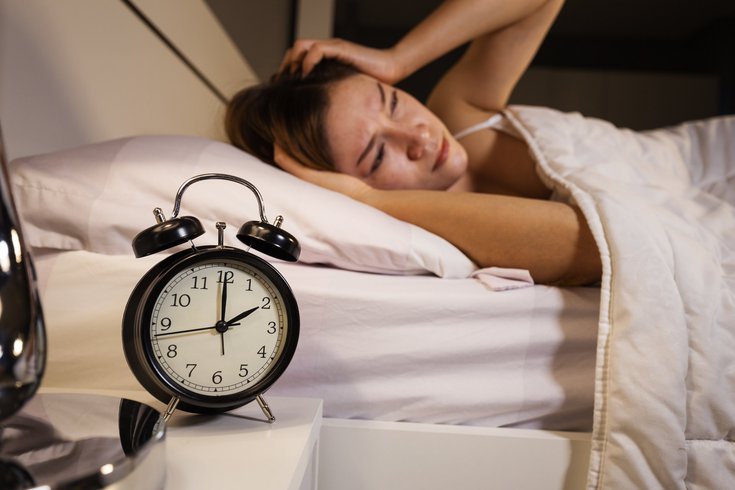
02 Aug Understanding Sleep Hygiene
Understanding Sleep Hygiene: A Key to Well-being
As a psychologist specialising in sleep disorders and mental health, I often encounter individuals grappling with sleep-related issues that affect their daily lives. Sleep hygiene, a term frequently mentioned but not always well understood, plays a crucial role in promoting restful and rejuvenating sleep. In this article, I aim to demystify sleep hygiene, discuss its importance, and provide evidence-based strategies to enhance sleep quality.
What is Sleep Hygiene?
Sleep hygiene refers to a set of practices and habits that are conducive to sleeping well on a regular basis. It encompasses both environmental and behavioural factors that can impact the quality and duration of sleep. These practices are essential for maintaining good sleep and overall health, especially as we navigate the challenges and stresses of life.
Importance of Sleep
As we age, life often becomes more demanding with career responsibilities, family commitments, and social engagements. Sleep tends to take a back seat as we juggle multiple roles and priorities. However, adequate sleep is not merely a luxury but a fundamental pillar of physical and mental well-being.
Recent research underscores the critical role of sleep in cognitive function, emotional regulation, immune function, and overall health maintenance. Insufficient sleep has been linked to increased risk of chronic conditions such as obesity, diabetes, cardiovascular diseases, and mood disorders like anxiety and depression.
Evidence-Based Strategies for Better Sleep Hygiene
- Consistent Sleep Schedule: Aim to go to bed and wake up at the same time every day, even on weekends. This helps regulate your body’s internal clock, making it easier to fall asleep and wake up naturally.
- Create a Relaxing Bedtime Routine: Establish a calming pre-sleep ritual to signal to your body that it’s time to wind down. This could include activities such as reading a book, taking a warm bath, or practising relaxation exercises like deep breathing or meditation.
- Optimise Your Sleep Environment: Make your bedroom conducive to sleep by ensuring it is cool, dark, and quiet. Consider using blackout curtains, earplugs, or a white noise machine if necessary. Also, invest in a comfortable mattress and pillows that support good sleep posture.
- Limit Exposure to Screens Before Bed: The blue light emitted by screens (phones, tablets, computers) can interfere with your sleep-wake cycle. Aim to avoid screens at least an hour before bedtime, or use blue light filters or apps that reduce blue light emissions.
- Be Mindful of Your Diet and Exercise: Avoid heavy meals, caffeine, and alcohol close to bedtime as these can disrupt sleep. Regular physical activity during the day promotes better sleep, but avoid vigorous exercise right before bed.
- Manage Stress and Anxiety: Practice stress management techniques such as journaling, mindfulness, or talking to a therapist if stress or anxiety is interfering with your sleep. Unresolved stress can lead to racing thoughts and difficulty falling asleep.
- Limit Naps During the Day: While short naps can be refreshing, excessive daytime napping can interfere with nighttime sleep. If you must nap, keep it short (20-30 minutes) and earlier in the day.
Practical Tips for Implementing Sleep Hygiene
- Track Your Sleep: Use a sleep diary or a smart device app to monitor your sleep patterns and identify areas for improvement.
- Educate Yourself: Stay informed about the latest research on sleep and its impact on health. Understanding the science behind sleep can motivate you to prioritise it.
- Seek Professional Help: If you consistently struggle with sleep despite practising good sleep hygiene, consider consulting a sleep specialist or psychologist. They can help diagnose any underlying sleep disorders and provide personalised treatment recommendations. CBT is the golden standard of treating insomnia from a psychological perspective.
Conclusion
In conclusion, prioritising sleep hygiene is not just about getting enough hours of sleep but also about optimising the quality of your sleep. By adopting evidence-based strategies and making small adjustments to your daily routine and environment, you can significantly improve your sleep and overall well-being. Remember, good sleep hygiene is a proactive investment in your health and happiness, ensuring you have the energy and resilience to navigate life’s challenges effectively.
For more information or to schedule a consultation with one of our psychologists, please contact Prosper Health Collective today. Let’s work together to ensure you get the restful sleep you deserve.
